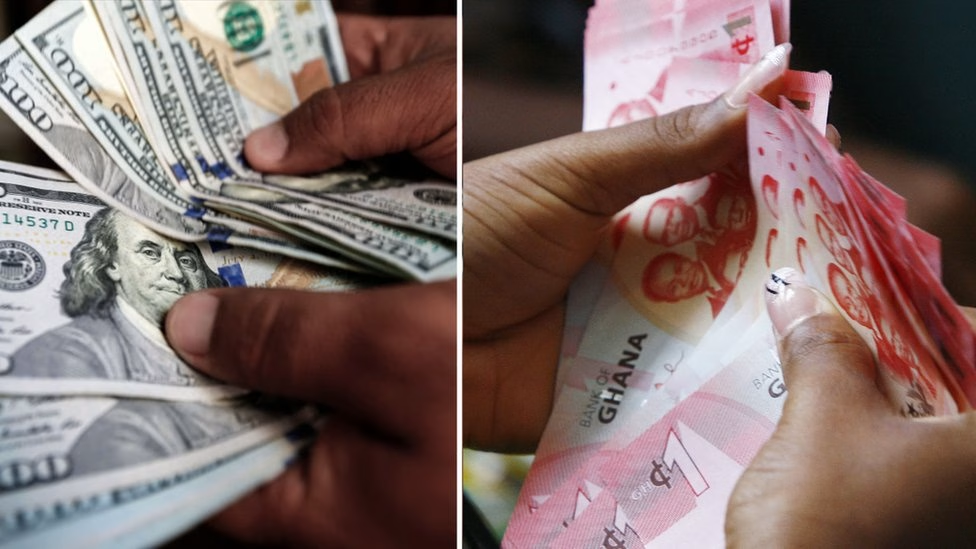Ghana’s local currency, the cedi, has taken a hit, depreciating against all major trading currencies, according to the latest Bank of Ghana report.
The September 2024 Summary of Economic and Financial Data reveals a 24.3% depreciation against the US dollar, up from 21.3% in August 2024.
This represents a marginal jump from the 22.9% year-by-year depreciation rate.
To put this into perspective, the cedi now trades at GHS 15.70 to a dollar, compared to GHS 11.12 in September last year.
This decline is also reflected in the cedi’s value against other major currencies. Against the Pound, the cedi depreciated by 27.7%, and against the Euro, the rate of depreciation stood at 25.0%, up from 22.3%.
This downturn comes at a critical time when Ghana needs to implement long-term measures to alleviate pressure on the local currency. Despite receiving the second tranche of its USD 3 billion Extended Credit Facility with the International Monetary Fund (IMF) earlier this year, the cedi’s value remains volatile.
Experts had anticipated relative stability following the IMF funding and other foreign inflows from donor partners. However, the demand for dollars is expected to surge, particularly in December due to the holiday season, which may lead to further depreciation.
The depreciation of the cedi has far-reaching implications for Ghana’s economy. Importers are struggling to stay afloat due to high import costs and limited access to foreign exchange. The Chamber of Bulk Oil Distributors reported difficulties in obtaining dollars to import petroleum products, with the Bank of Ghana only able to supply 30% of their forex needs.
The situation is affecting various sectors, including consumer goods, cosmetics, oil and gas, agribusiness, and pharmaceuticals. Local clients are hesitant to commit to long-term, dollar-based contracts due to concerns about the cedi’s volatility.
Inflation has also soared, reaching 40.4% year-on-year in October 2022, driven by higher food and fuel prices. This has eroded consumer purchasing power, leading to reduced demand for goods and services.
To mitigate these challenges, the government must prioritize economic stability and implement measures to support local businesses. This may involve diversifying the economy, promoting exports, and encouraging foreign investment.
The cedi’s depreciation serves as a reminder of Ghana’s vulnerability to external economic pressures. Addressing these challenges requires a concerted effort from policymakers, businesses, and individuals to ensure the country’s economic resilience.


